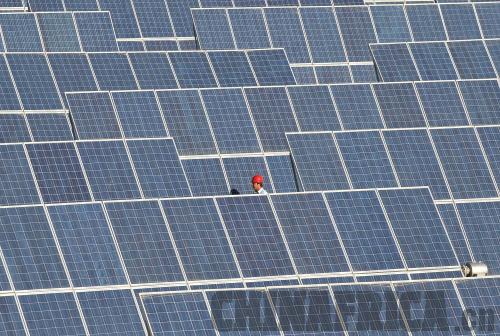|

Unified Solar PV Tariff
The Chinese Government has set a unified national solar photovoltaic (PV) benchmarking on-grid tariff in order to improve its PV tariff policy to standardize solar PV tariff management and promote sustainable development of solar PV industry.
Power grid operators will be required to pay solar energy producers 1.15 yuan ($0.18) per kwh of electricity, according to a notice posted on the website of the National Development and Reform Commission. The notice also stated that the prices only apply to solar power project that were approved before July 1. Electricity generated by projects that were approved after July 1 will be priced at 1 yuan ($0.15) per kwh, the notice said.
Backdoor Listing Rule Tightened
Backdoor listings in China will be better regulated by a revised regulation on the country's mergers and acquisitions market published by the China Securities Regulatory Commission (CSRC) on August 5.
Companies intending to go public through backdoor listing should have at least three consecutive years of operation and a cumulative net profit of more than 20 million yuan ($3.07 million) for the previous two fiscal years.
The new regulations, effective from September 1, are aimed at better administering backdoor listings, curbing speculation and insider trading, as well as invigorating the delisting mechanism, the CSRC elaborated.
In a backdoor listing, a company acquires a listed firm and uses it as a "shell", injecting its own assets into the public firm. In this way, it can get its shares listed on the public stock exchanges without undergoing the regulatory and investor scrutiny required for an initial public offering.
Drafting Policies to Support SMEs
Supportive policies for small and medium-sized enterprises (SMEs) to solve their financing problems has been drafted by departments under the State Council, China's cabinet, according to industry insiders.
Expected to be launched later this year, the policies stipulate intermediary agencies should be established to guide private capitals investing and financing in SMEs. A modern corporate system and a credit system will also be set up, through which SMEs can issue bond funds and equity financing to solve their financing problem, said Liu Gongxiao, Director of the Machinery Industry Information Center, who has been involved in researching and making related policies.
The policies will be implemented throughout the 12th Five-Year Plan period (2011-15).
Emergency Response Urged
Power companies are required to build up their emergency response capabilities to power safety accidents to alleviate and eliminate damage, according to a regulation posted on the Chinese Government's website.
Taking effect September 1, the regulation urges power companies to take preventive measures to avoid power accidents. They should also report power incidents to local regulatory authorities timely and precisely.
Power firms and their officials responsible for accidents will be fined according to the seriousness of the accidents.
Local governments and power regulatory authorities will also receive punishment if they delay rescue work and report, provide false information, interrupt investigation or commit perjury.
Jet Fuel Pricing Mechanism Reformed
The National Development and Reform Commission (NDRC) announced it would introduce a market-oriented jet fuel pricing mechanism from August 1 on.
Under the new mechanism, the ex-plant price of jet fuel should not be higher than the after-tax CIF (cost, insurance and freight) price of jet fuel imported from Singapore, the largest oil trading and storage center in Asia.
Taking transportation expenses, trade volumes and international crude oil prices into account, the jet fuel premium is negotiable between jet fuel sellers and buyers and will be reviewed once a year. And jet fuel ex-plant prices will be adjusted on the first day of every month, according to NDRC.
If the plan works, the change may be a precursor to reform the mechanism for key transportation fuels, like gasoline and diesel.
|